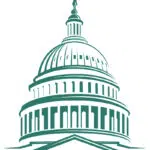Meadows v. Pelosi

January 6 Committee
Major Issue: Whether documents and testimony subpoenaed by a congressional committee involving a former White House Chief of Staff are protected by absolute immunity or executive privilege.
Case Status: Complete.
Case Description: On Sept. 23, 2021, the House Select Committee to Investigate the Jan. 6th Attack on the United States Capitol served a subpoena on Mark Meadows for a series of documents and deposition testimony relating to his tenure as White House Chief of Staff during the Trump Administration. On Dec. 8, 2021, Mr. Meadows sued House Speaker Nancy Pelosi and the Select Committee and its members to challenge the subpoena.
Procedural Posture: The lawsuit was filed in the U.S. District Court for the District of Columbia, and Judge Carl J. Nichols was assigned to the case. The parties filed for summary judgment. In addition, the Department of Justice filed a pleading in which it took the position for the first time that a former presidential adviser to a former president had only a “qualified” rather than “absolute” immunity to a congressional subpoena for testimony. On Oct. 31, 2022, the District Court dismissed the lawsuit for lack of jurisdiction. On Nov. 22, 2022, the District Court denied a motion for reconsideration. No appeal was filed.
On Dec. 8, 2021, Mark Meadows filed a complaint in the U.S. District Court for the District of Columbia against House Speaker Nancy Pelosi and the Select Committee and its members. Judge Carl J. Nichols was assigned to Civil Action No. 21-3217. In addition to accepting pleadings from the parties, the District Court invited the Department of Justice to address the issues. In response, for the first time, the Department of Justice took the position that a former presidential adviser to a former president had only a “qualified” rather than “absolute” immunity to a congressional subpoena for testimony, that Congress could overcome that qualified immunity upon a showing of need, and that the January 6 committee had made the necessary showing. On Oct. 31, 2022, the District Court dismissed the lawsuit for lack of jurisdiction, citing the Constitution’s Speech or Debate Clause which prohibits challenging members of Congress in court regarding their legislative acts.
- Meadows complaint to block subpoena (12-8-2021)(43 pages)
- House answer to Meadows complaint (3-4-2022)(30 pages)
- Meadows amended complaint to block subpoena (4-1-2022)(52 pages)
- House answer to amended complaint (4-22-2022)(35 pages)
- House motion for summary judgment (4-22-2022)(248 pages)
- Meadows motion to deny motion for summary judgment (4-29-2022)(3 pages)
- Meadows memorandum in support of motion to deny summary judgment (4-29-2022)(20 pages)
- Meadows motion for judgment on the pleadings or, in the alternative, for summary judgment (5-20-2022)(3 pages)
- Meadows memorandum in support of motion for judgment on the pleadings (5-20-2022)(57 pages)
- Meadows reply in support of motion for judgment on the pleadings (6-6-2022)(46 pages)
- House supplemental brief (7-15-2022)(11 pages)
- DOJ statement of interest (7-15-2022)(17 pages)
- House response to DOJ statement of interest (8-5-2022)(8 pages)
- Meadows response to House supplemental brief (8-5-2022)(6 pages)
- Meadows response to DOJ statement of interest (8-5-2022)(17 pages)
- Meadows notice of supplemental authority (9-27-2022)(3 pages)
- D.C. District Court opinion dismissing Meadows lawsuit (10-31-2022)(27 pages)
- D.C. District Court order denying Meadows motion for reconsideration (11-22-2022)(6 pages)
No proceedings to date.
No proceedings to date.


